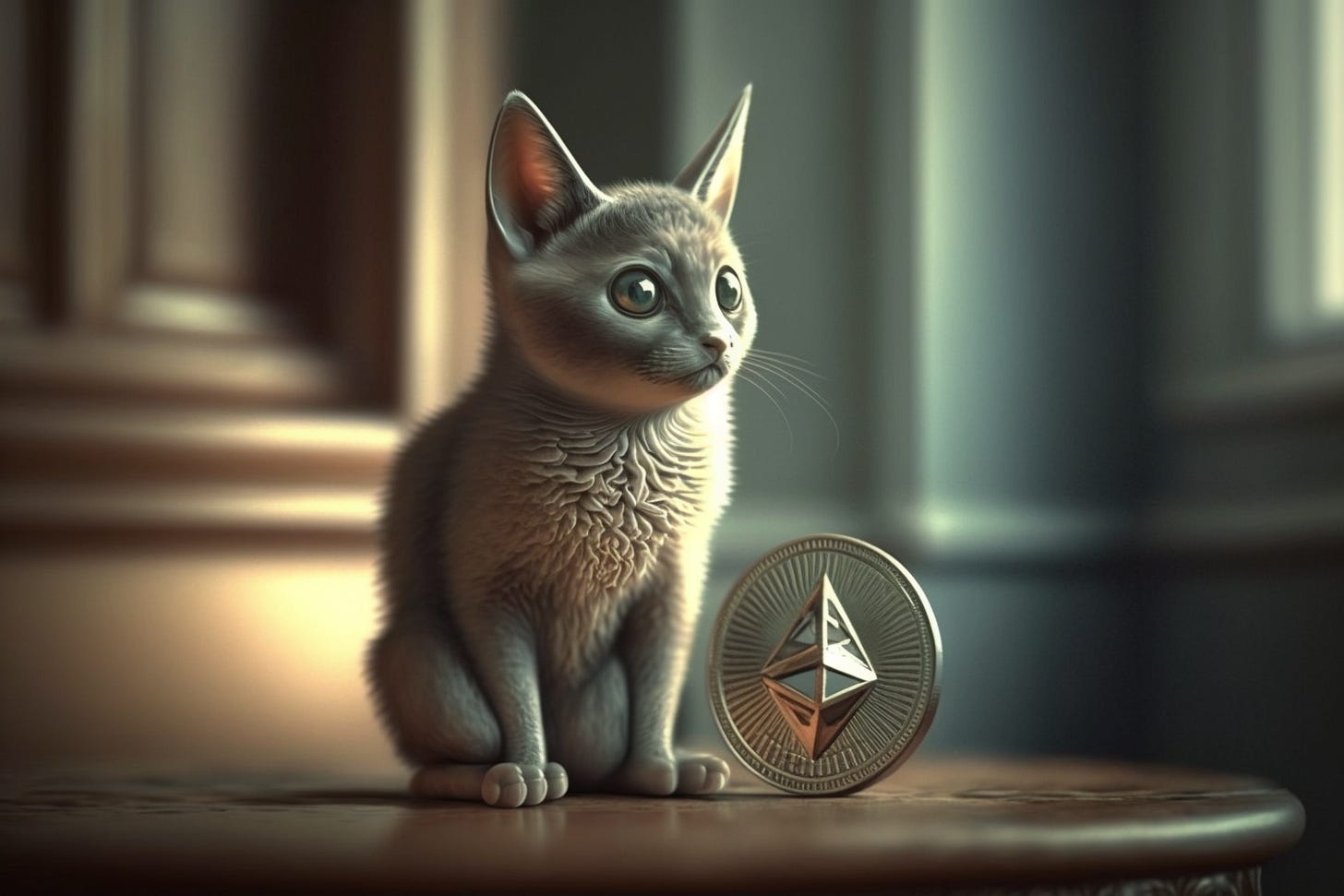What is Ethereum
Ethereum: The Next Generation of Blockchain Technology and Decentralized Applications
Ethereum is a decentralized platform that runs smart contracts: applications that run exactly as programmed without any possibility of fraud or third-party interference.
In Ethereum, all transactions are public and anonymous. This makes it difficult to shut down or censor the network because there is no centralized point of control. Additionally, Ethereum enables developers to build decentralized applications (dApps) on its blockchain. This allows for near-instantaneous transaction confirmations and eliminates user fees paid to middlemen like credit card companies or PayPal.
Unlike Bitcoin, which was designed primarily as a digital currency, Ethereum was built with flexibility in mind. Its programming language, Solidity, enables developers to create all kinds of distributed apps and contracts on top of the Ethereum Blockchain!
What kind of dApps can you build on Ethereum
There are a wide variety of dApps that can be built on Ethereum. Here are just a few examples:
Decentralized exchanges: These enable users to trade cryptocurrencies or other digital assets in a peer-to-peer manner without the need for a central exchange. Examples include 0x and Kyber Network.
Gaming apps: There are numerous gaming dApps available on Ethereum, ranging from simple games like CryptoKitties to more complex ones like EtherGoo. Some even offer rewards in cryptocurrency for playing!
Financial services apps: With blockchain technology, many traditional financial services can be decentralized and made accessible to everyone without the need for banks or intermediaries.
What is the difference between Ethereum and Ether
When it comes to cryptocurrency, Ethereum and Ether are often used interchangeably. However, there is a big difference between the two. First, let’s start with some basics. Cryptocurrency is digital or virtual money that uses cryptography for security purposes. It is decentralized meaning it isn’t subject to government control like traditional currency.
Ether is fuel for the Ethereum network. It helps power all these different dApps by being ‘spent’ when they are used – just like how real-life gas fuels our cars (and sometimes homes!). When someone wants their dApp program to do something on the Ethereum network, they need ether in order to perform this action (known as ‘gas’). The amount of ether needed varies depending on how complex the task requested from the program is. For example, more complicated tasks will require higher amounts of gas than simpler ones. If there isn't enough 'fuel' in your account balance, then your transaction won't go through! Just like a car running out of gas wouldn't get very far. All unused/unspent gas stays in your wallet though so don't worry about overpaying - think of it more like paying an entry fee rather than wasting a valuable resource.
Why is Ethereum better than Bitcoin
When it comes to cryptocurrency, there is no one-size-fits-all solution. Each digital currency has its own advantages and disadvantages. However, if we had to pick one winner between Bitcoin and Ethereum, then Ethereum would be the clear choice.
Here’s why:
Bitcoin was created in 2009 as a peer-to-peer electronic cash system. It was the first blockchain application, but it isn’t very flexible. For example, you can only create simple applications on top of Bitcoin because of its limited scripting language ability. This means that complex apps like smart contracts cannot be built on Bitcoin. On the other hand, Ethereum was designed from scratch with more advanced features specifically for building decentralized applications (dApps). Its Turing complete programming language allows for much more flexibility when creating dApps. In addition, since Ethereum supports multiple coding languages, this makes it even easier for developers to build on the platform compared to other blockchains which might require learning a new proprietary language. Overall, this technical superiority gives Ethereum an edge over bitcoin especially when considering future potential growth prospects.
What is the roadmap for Ethereum
The roadmap for Ethereum has been laid out by its founder Vitalik Buterin and is constantly being updated as the project develops. The main goal of Ethereum is to create a global computer that anyone can use regardless of location or access privileges. To achieve this, various stages need to be completed including research, development, testing & deployment (of both software & hardware).
This article is part of the Know-It-All project. Do you have a suggestion about another topic you’d like us to cover? Get in touch at know-it-all@555vCTO.com




